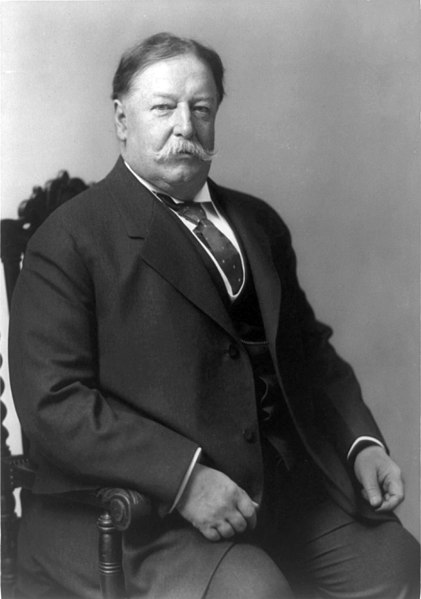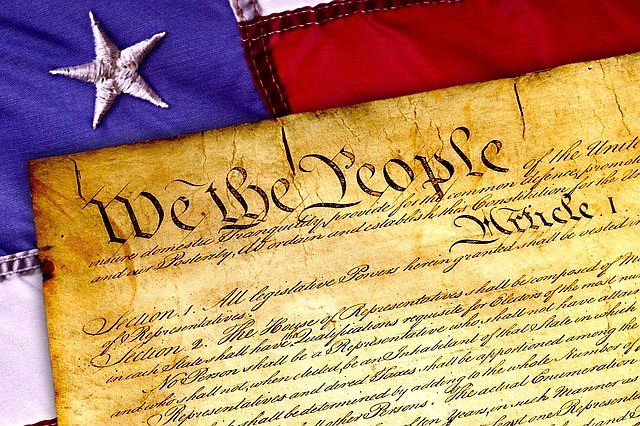This week in the Law Library, we’re teaching LLM students about secondary sources; teaching technology in law practice; and celebrating the grand opening of our new building, Constitution Day, and Taft Week.
This Week’s Research Sessions
Monday, September 12, 2022
Legal Research & Writing for LLM Students
Shannon Kemen, Legal Technology & Research Instructional Services Librarian
Room 230
8:00am – 9:20am
Secondary Sources
Tuesday, September 13, 2022
Technology in Law Practice
Shannon Kemen, Legal Technology & Research Instructional Services Librarian
Room 107
11:10am – 12:05pm
College of Law New Building Grand Opening

On Tuesday, September 13th, we will celebrate our new building!
10:30 am – 12:30 pm, Atrium
- 10:30 am: Coffee and Donuts
- 11:00 am: Remarks and Ribbon Cutting
- 12:15 pm: Open House
Keynote speaker, Maureen O’Connor, Chief Justice of the Supreme Court of Ohio.
Learn more and register at Building Next.
Celebrate Taft Week

This week is Taft Week at the College of Law! President & Chief Justice William Howard Taft graduated from University of Cincinnati Law School in 1880. SBA is featuring several events in celebration. Visit the Law Library’s Taft Week Guide for fun and interesting facts about Taft.
Monday, September 12
Donuts in Honor of Taft Week, 10:00 am, Atrium. Brought to you by SBA
Wednesday, September 14
Taft Week Keynote Lecture, 12:30 pm, Room 160. Professor Chris Bryant will discuss William Howard Taft’s view on presidential power and his legacy as it pertains to UC Law.
Friday, September 16
Taft Week Happy Hour, 5:00 pm, Taft Ale House.
Constitution Day Celebration, September 16, 2022

#Constitution Day is observed each year on September 17 to commemorate the signing of the Constitution on September 17, 1787. Public Law 108-447 requires that every educational institution which received Federal funds hold a program on the Constitution for students. This year the College of Law’s Constitution Day speaker is Victoria Nourse, Ralph V. Whitworth Professor in Law and Director of the Center on Congressional Studies at Georgetown Law. She will speak on “Democracy’s Constitution.” The 2021 U.S. Supreme Court term’s blockbuster cases on abortion, guns, and climate change, are just the beginning of a revolution in constitutional doctrine, which looks decidedly to the past to construct legal rules. The very lingua franca of constitutional law is about to change. Professor Nourse will share her recent research (124 cases and 300 opinions) showing the Supreme Court’s “disruptive” effects reach beyond the cases read about in the newspapers. She also will sketch a blueprint of “Democracy’s Constitution” which envisions the constitution very differently than is typical for constitutional lawyers. The lecture is made possible through the generous support of the Alfred B. Katz Constitution Day Fund in memory of Alfred B. Katz ’35. More at Constitution Day Event Details.
In honor of Constitution Day, the Law Library will also feature a display of rare books from our collection that are related to the U.S. Constitution.
Featured Database
U.S. Presidential Library on HeinOnline
This database includes messages and papers of the presidents, daily and weekly compilations of presidential documents, public papers of the presidents, documents relating to impeachment, Title 3 of the Code of Federal Regulations (CFR) and a host of other related works. In celebration of Taft Week, take a look at some of the resources on President Taft available in this library:
Robert Lee Dunn, William Howard Taft American (1908)
Frederick C. Hicks, William Howard Taft: Yale Professor of Law & New Haven Citizen (1945)
Raymond Patterson, Taft’s Training for the Presidency (1908)
Presidential Addresses and State Papers of William Howard Taft
Taft Papers on League of Nations
William S. White, Taft Story (1954)
Featured Guide
Taft Week: William Howard Taft
William Howard Taft served as the 27th President of the United States (1909-1913) and later the 10th Chief Justice of the United States (1921-1930). He is the only person to have served in both of these offices. This guide directs you to resources to learn more about President and Chief Justice Taft.
Featured Video
William Howard Taft and the Constitution
National Constitution Center President and CEO Jeffey Rosen unveils his newest book on only man to serve as president and chief justice – William Howard Taft. Rosen argues that Taft was our most judicial president and presidential chief justice and explores Taft’s crucial role in shaping how America balances populism with the rule of law. The discusion will be moderated by Judge Douglas Ginsburg, who calls Taft “the most under-appreciated constitutional gure since George Mason.”
Featured Study Aids
Constitutional Law National Power and Federalism: Examples & Explanations
Available via the Aspen Learning Library study aid subscription, this is a problem-oriented guide to the principle doctrines of constitutional law that are covered in the typical course. The text walks the student through issues pertaining to the structure of our constitutional system, including judicial review, justiciability, national power, supremacy, the separation of powers and federalism, as well as some of the structural limitations that the Constitution imposes on state powers. Combines textual material with well-written and comprehensive examples, explanations, and questions to test studentsrsquo; comprehension of the materials and provide practice in applying legal principles to fact patterns. New to the Ninth Edition: Inclusion of more than 40 new Supreme Court cases, more sophisticated discussion of the federal preemption doctrine, updated treatment of presidential impeachment, expanded discussion of the executive privilege doctrine, and deeper coverage of the appointment and removal of federal officials.
Principles of Constitutional Structure
Available via the West Academic study aid subscription, this text offers an overview of federalism, the separation of powers, and related matters of constitutional structure. It covers such topics as: the lawmaking powers of the national government (including those powers conferred by the Commerce Clause, the Taxing and Spending Clause, the Necessary and Proper Clause, the Enforcement Clauses of the Reconstruction Amendments, and other sources of federal legislative authority); federalism-based “external” constraints on congressional power (including those provided by the anti-commandeering principle, the “equal sovereignty” principle, and principles of state-sovereign immunity); federalism-based limits on state authority (including those imposed by the dormant Commerce Clause, the Article IV Privileges and Immunities Clause, and statutory preemption doctrine); structural constitutional principles concerning governmental entities other than the states (including Native nations, overseas territories, and the District of Columbia); and the horizontal allocation of power across the three branches of the federal government (including with respect to foreign and military affairs, the federal administrative state, the appointment and removal of executive-branch officials, impeachment, presidential and legislative immunities from judicial process, and the powers of the federal courts).
Understanding Constitutional Law
Available via the LexisNexis Digital Library study aid subscription, this study aid covers all of the central concepts and issues students encounter in any basic constitutional law course. Structure of Government issues revolve around the twin themes of federalism and separation of powers. Individual rights and liberties follow a concept organization-Due Process, Equal Protection, and First Amendment. Clearly written and authoritative, Understanding Constitutional Law addresses the central concepts and issues students encounter in most Constitutional Law casebooks. “Structure of government” issues revolve around the twin themes of federalism and separation of powers. Individual rights and liberties follow a concept organization – Due Process, Equal Protection, and First Amendment.
Featured Book
William Howard Taft, American by Robert Lee Dunn (public domain e-book)
Featured Website
The American Presidency Project, William Howard Taft
The goal of the American Presidency Project is to be recognized as the authoritative, non-partisan on-line source for presidential public documents. Their entry on President Taft includes speeches, executive orders, and more.
